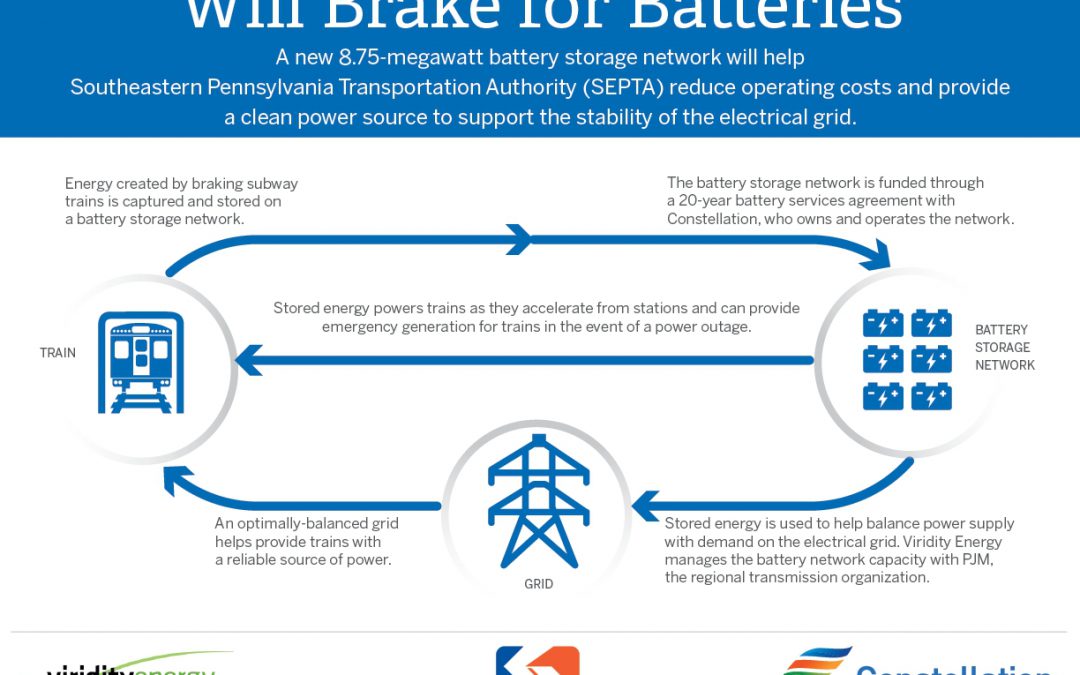One of the nation’s largest behind-the-meter battery storage networks will capture and reuse the energy created by braking subway trains
PHILADELPHIA–(BUSINESS WIRE)–A battery storage network, which captures and reuses the energy created by braking subway cars, will help Southeastern Pennsylvania Transportation Authority (SEPTA) reduce operating costs, ensure energy resiliency, and support the stability of the electrical grid.
“Our ground-breaking regenerative braking pilot at SEPTA proved that energy storage can be used by transit systems to create substantial cost savings, generate revenue, and contribute to sustainability goals”
Constellation, a subsidiary of Exelon Corporation, will fund, own, and operate the 8.75-megawatt battery storage network, deployed at seven SEPTA substations. The network is designed to use stored energy to power trains as they accelerate from stations and can provide emergency generation for trains in the event of a power outage. An expansion of SEPTA’s 1.8 MW battery storage pilot program completed in 2014, the new network brings the agency’s total battery storage capacity to more than 10 MW.
“SEPTA’s Sustainability Program is all about finding and deploying cutting-edge innovations to reduce costs in addition to improving environmental performance. This project is right in that sustainability sweet spot, and we are pleased to partner with Constellation and Viridity in bringing it to market right here in the Philadelphia region, an emerging hub for innovative energy projects,” said SEPTA General Manager Jeffrey D. Knueppel.
The project, which is among the first commercially deployed battery storage systems in a transit operation, requires no upfront capital investment from SEPTA and will be financed through a 20-year battery services agreement with Constellation.


Recent Comments